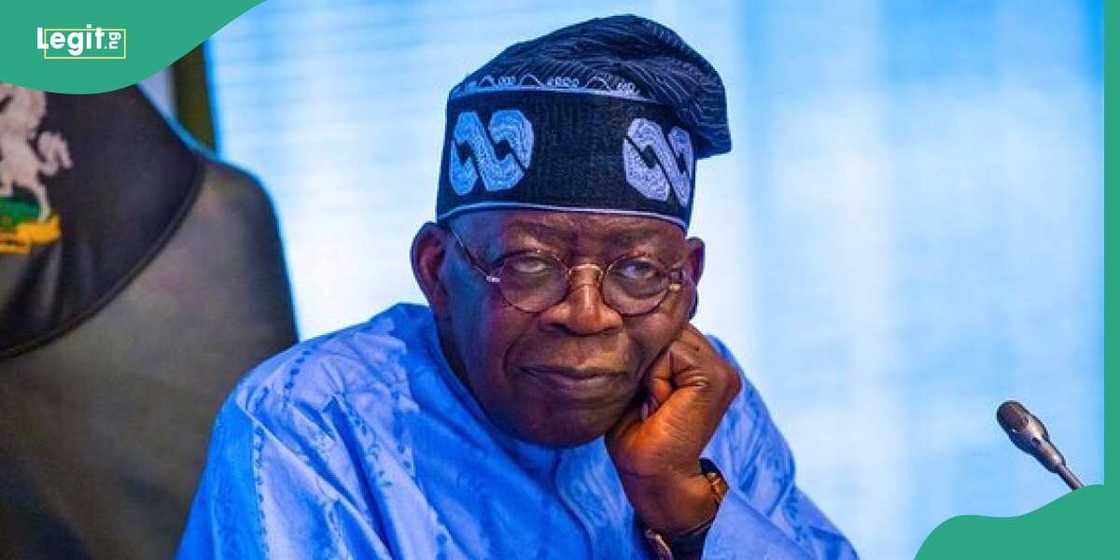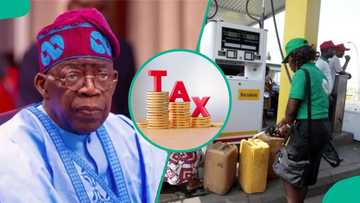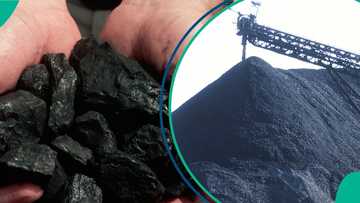Myths, Facts About 5% Fossil Fuel Tax as FG Exempts 3 Products
- The Nigerian government’s proposed 5% fuel surcharge has triggered a lot of reactions from Nigerians
- Many citizens see the tax as another burden on their already depleted household income
- However, a tax expert, Aderonke Atoyebi, has debunked some of the myths surrounding the controversial tax
Pascal Oparada, a reporter for Legit.ng, has over ten years of experience covering technology, energy, stocks, investment, and the economy.
The Federal Government’s proposed 5% fuel surcharge has sparked considerable debate and anxiety among Nigerians, with many perceiving it as yet another burden on an already struggling populace.
However, government officials have stepped forward to clarify the true nature of this measure, emphasising that it is not a new tax but rather an infrastructure fund designed to bolster the nation’s critical road and transport networks.

Source: Facebook
A deeper look: The surcharge vs. a new tax
This clarification comes amidst widespread misinformation, particularly on social media, which has fueled unnecessary fears and misunderstandings.
According to Arabinrin Aderonke Atoyebi, a technical assistant on broadcast media to the Executive Chairman of the Federal Inland Revenue Service (FIRS), the 5% fuel surcharge is fundamentally distinct from a general tax.
She explained, "A fuel surcharge is a small extra charge on fuel, meant for a specific purpose. In this case, it is for our roads and transport infrastructure."
This crucial distinction underscores that the funds generated will be ring-fenced for a dedicated objective and cannot be diverted for other governmental expenditures.
Atoyebi further stressed, "It is not a tax the government can use however it likes, and it is definitely not about immediately taking more from us at petrol stations."
This clarification aims to dispel the notion that the surcharge is a direct and immediate imposition on consumers at the pump.
An existing framework, modernised for transparency
One of the most significant points of clarification provided by Atoyebi is that the surcharge is not a novel introduction under the 2025 Tax Act.
Instead, its legal basis dates back to 2007, under the Federal Roads Maintenance Agency (FERMA) Act.
The recent update, she explained, serves to "modernise the framework, make it clearer, and ensure transparency" in the collection and utilisation of these funds.
This modernisation is intended to address any ambiguities in the existing legal framework and enhance public trust in the management of these resources.
Furthermore, Atoyebi addressed concerns about the immediate implementation of the surcharge, refuting widely circulated speculations that it would take effect in January 2026.
She clarified that the Finance Minister must first issue an official directive and publish it in the Federal Government Gazette before the measure can be implemented.
This procedural safeguard provides a window for public awareness and proper administrative processes to be followed.
Crucially, the FIRS official also offered reassurance to vulnerable households, stating unequivocally that those who rely on kerosene, Liquefied Petroleum Gas (LPG), Compressed Natural Gas (CNG), or renewable energy sources will not be impacted by this policy.
This exemption highlights a consideration for the energy needs of a significant portion of the population, particularly those in lower-income brackets.
Dedicated funding for sustainable infrastructure development
The core argument for the surcharge, as articulated by the government, centres on its necessity for sustaining and expanding the visible improvements already being made on major highways across the country.
Citing successful road upgrades such as the Lagos-Ibadan Expressway, Abuja-Kaduna Road, and sections of the Enugu-Onitsha route, Atoyebi emphasised that this dedicated fund would ensure the long-term maintenance and expansion of these vital networks to other states.
She passionately articulated the benefits: "With the 5% fuel surcharge, the government can continue this progress and expand it to more states.
Cars will last longer, goods will move faster, and our daily journeys to work, school, or market will be much easier."
This vision underscores the government's aim to foster economic growth, enhance productivity, and improve the quality of life for citizens through robust infrastructure.
Addressing a common counter-argument that savings from fuel subsidy removal should suffice for road repairs, Atoyebi clarified that subsidy funds are already broadly allocated across other critical sectors such as education, healthcare, and security.
The surcharge, she maintained, is designed to ensure that transport infrastructure has a consistent and dedicated pool of resources, preventing it from competing with other urgent national priorities.
"Having this surcharge means transport infrastructure all over Nigeria has its own dedicated money, so it doesn’t have to compete with other pressing needs," she noted, highlighting the strategic importance of independent funding for this sector.
A long-term investment for national prosperity
The clarification regarding the fuel surcharge comes at a time of heightened public discourse surrounding rising costs and government revenue measures.
While scepticism persists among segments of the public, Atoyebi steadfastly insisted that the surcharge should be perceived as a pragmatic and long-term investment in national safety, economic growth, and ultimately, cost savings for Nigerians.
In her concluding remarks, she encapsulated the government’s perspective: "It’s a small step today that promises a big difference for Nigerians tomorrow."
This statement aims to shift the public perception from an immediate financial burden to a strategic investment with future dividends, emphasising the government's commitment to building a more resilient and prosperous Nigeria through improved infrastructure.

Read also
Presidency lists 4 things Nigerians need to know as non-oil revenues power strong fiscal performance

Source: Facebook
Meanwhile, Nigerians can breathe a sigh of relief as the Act clarified that liquified natural gas or cooking gas, kerosene and compressed natural gas (CNG) are exempt.
Nigerians kick against 5% fuel charge on petrol, diesel
Legit.ng earlier reported that transporters, farmers, human rights advocates, and civil society organisations nationwide have opposed the five per cent users’ charge on petrol and diesel prices, stating that it could cause more hardship and protests nationwide.
The House of Representatives Ad Hoc Committee probing the non-remittance of the five per cent user charge on petroleum products to the Federal Roads Maintenance Agency (FERMA) called for the charge’s implementation as enshrined in the FERMA Act 2007.
The Act states that five per cent of the pump price of petrol and diesel purchased by Nigerians will be added to road maintenance, with 40% remitted to FERMA and 60% to state road maintenance agencies.
Proofreading by James Ojo, copy editor at Legit.ng.
Source: Legit.ng






